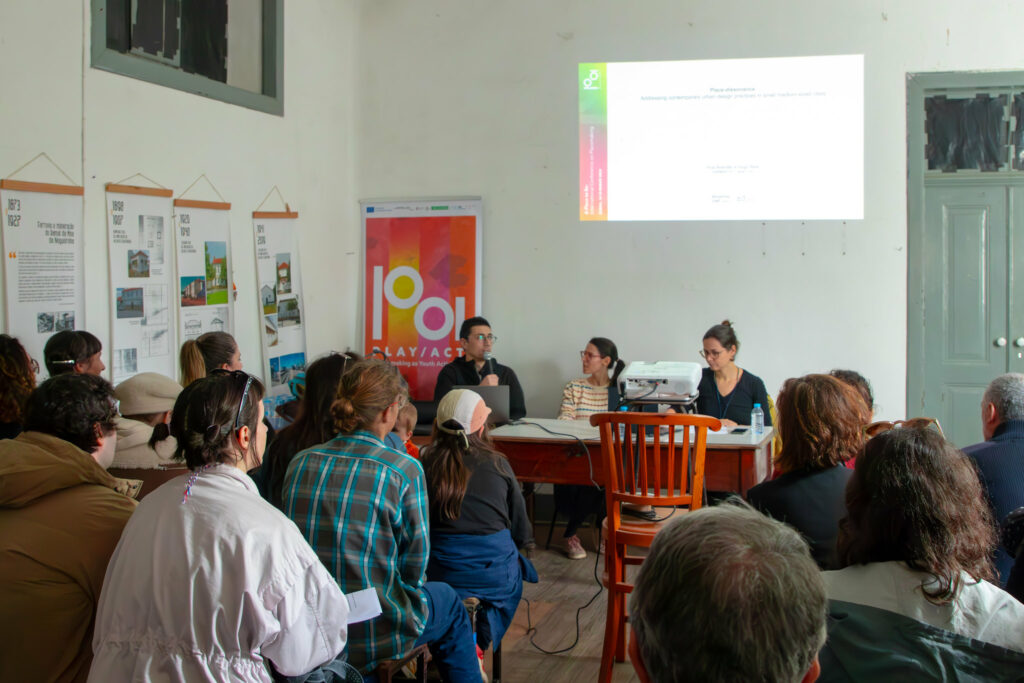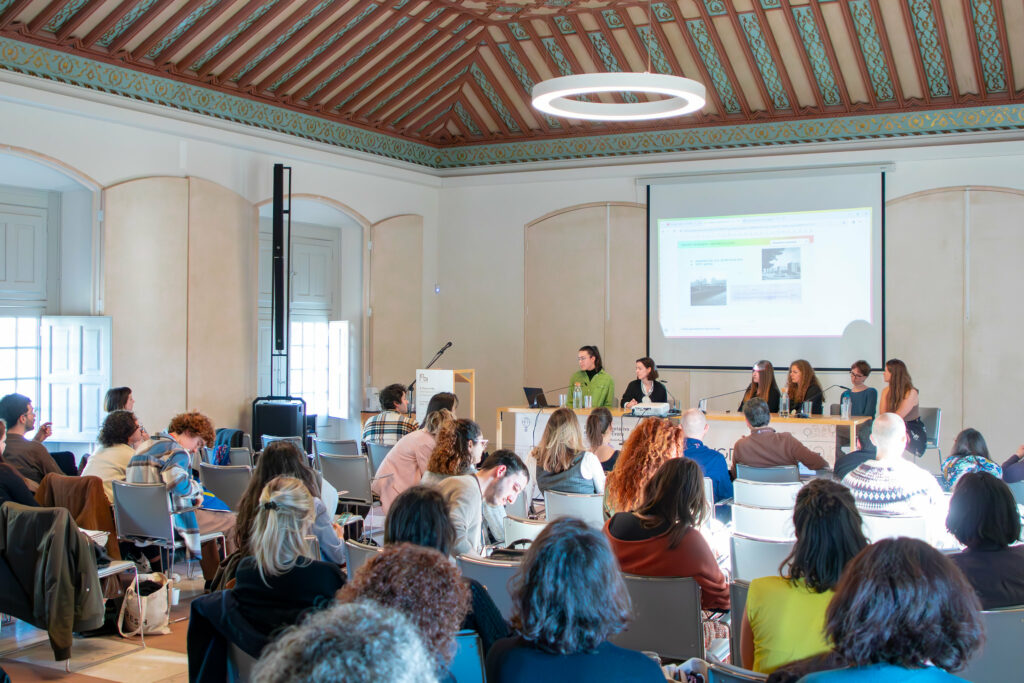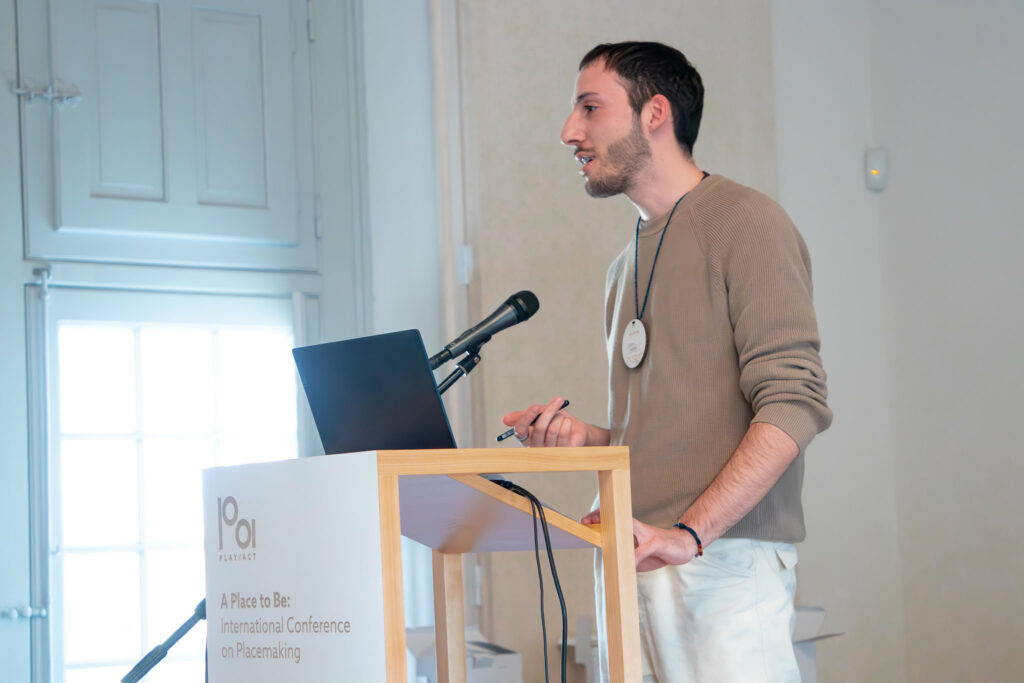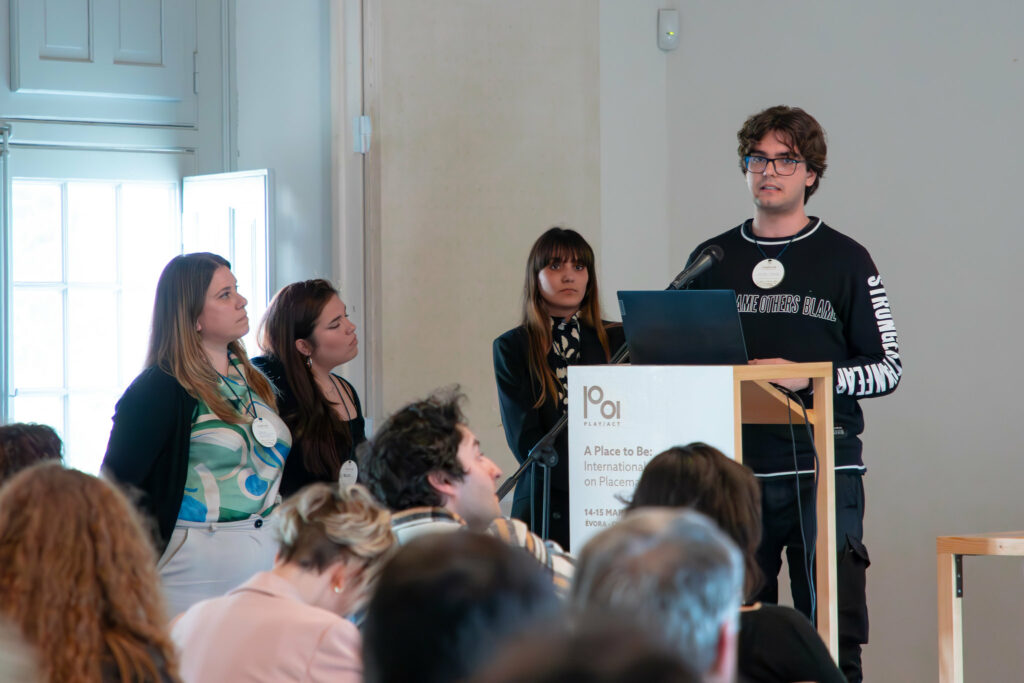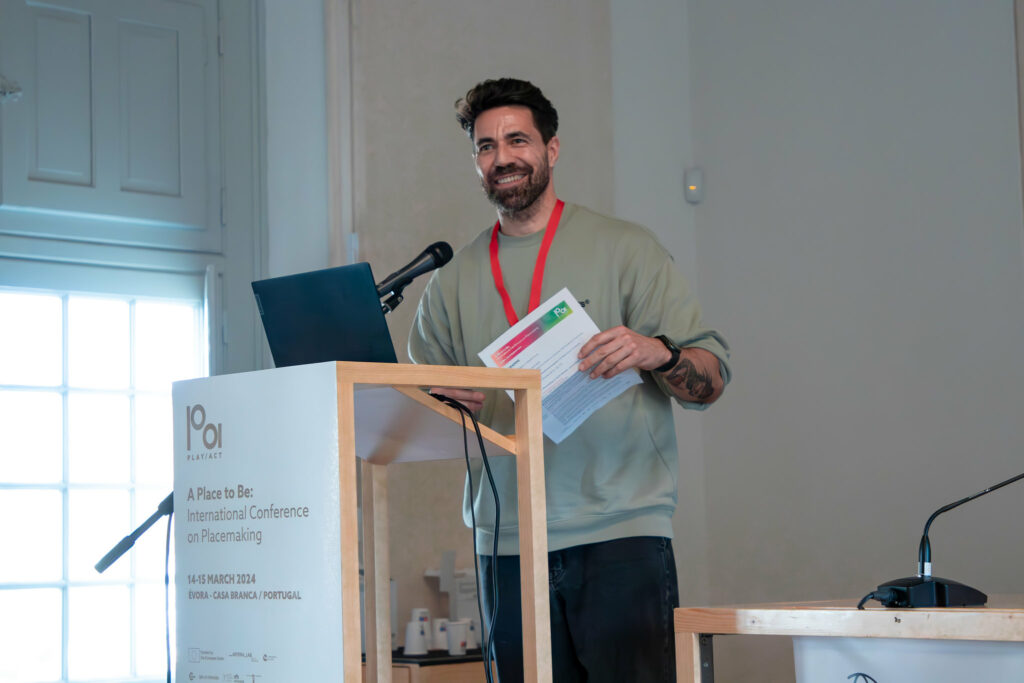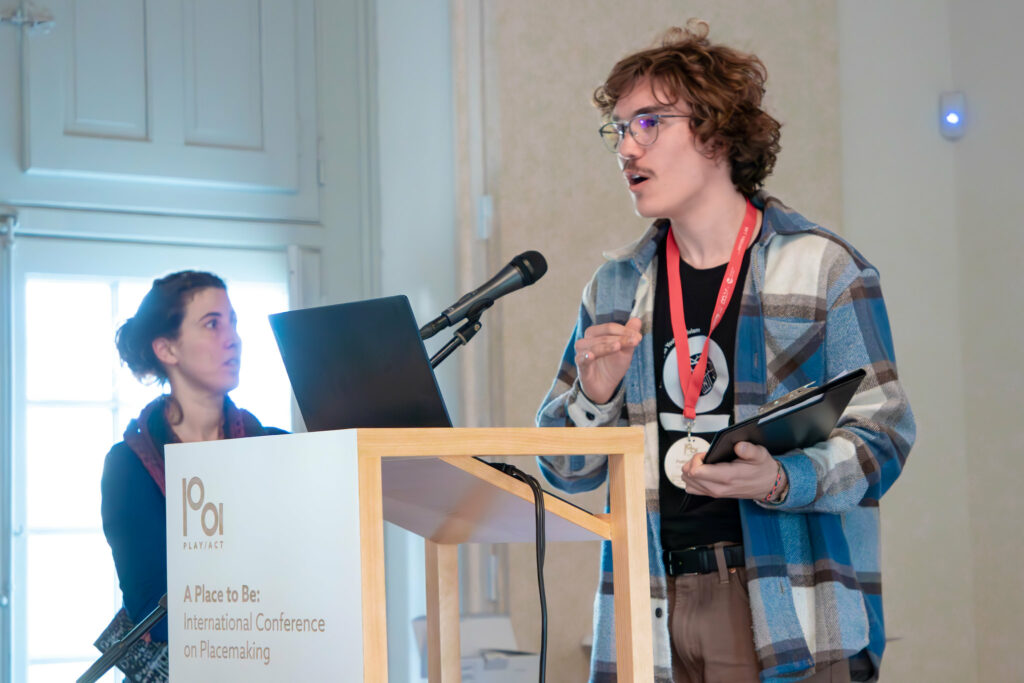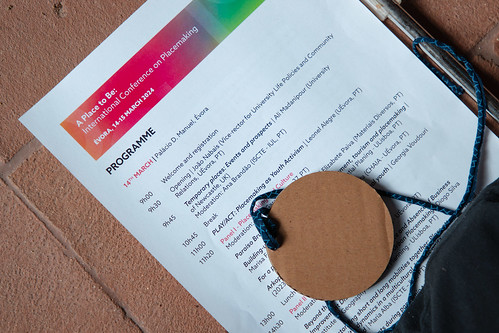
Students from four European cities presented exciting Placemaking projects as part of the PLAY/ACT project, highlighting the transformative potential of participatory and community-centered urban design.
As part of the Erasmus+ Play/Act project, the Portuguese city of Évora hosted last week the International Placemaking Conference “A Place to Be”.
The continuous learning course implemented within the framework of the PLAY/ACT project brought together a diverse group of international students from the University of Évora (Portugal), University of Extremadura (Spain), Università degli Studi della Basilicata (Italy), and from the Contemporary Architecture Center KÉK (Hungary). Under the guidance of their professors, the students embarked on the challenge of implementing Placemaking projects in their respective cities.
During the presentations of their final prototypes, the students shared the processes and outcomes of their projects. In Évora, they focused on revitalizing the commercial and social vibrancy of the Largo do Chão das Covas, a square in the historic center. In Mérida, they worked on the Economato, a youth leisure center. In Matera, they focused on the Serra Venerdì neighborhood, seeking to strengthen the relationship between residents and green spaces. Finally, in Budapest, they addressed the Kelenföld City Center, a shopping center at risk of demolition but with an important role in local communities.
This project has a dual objective. First, the implementation of a continuous learning course on city-making for university students from the four partner countries (Portugal, Spain, Italy, and Hungary). Second, collaborative design and the creation of public spaces, maximizing different values among participants, such as collaborative work and community revitalization. It is noteworthy that the project follows the principles of the New European Bauhaus (NEB), whose fundamental pillars are sustainability, aesthetics, and inclusion, breaking down barriers between science and technology to address social challenges.
The purpose of this meeting was aimed at sharing diverse perspectives, experiences, and practices related to the transformation of places through civic participation and co-design processes. Independent researchers, urban agents, and representatives of non-governmental organizations (NGOs) presented their projects and studies on city-making initiatives.
The program included twenty presentations related to divided into four major themes: Culture, Youth, Societal Challenges, Public Policies.
The International Conference scheduled in Évora also featured the participation of Professor Ali Madanipour from Newcastle University (UK) as a guest speaker, an expert in architecture, urban design, and planning. The presentation investigated the potentials and limitations of urban development through the construction and use of temporary places. It was structured in three parts. First, it examined the contexts in which the temporary production and use of space emerge. Second, it critically analysed the perspectives and expectations of the different participants in these urban development processes. Third, it explored the creative potentials of temporary urbanism through three themes of questioning, experimenting, and innovating.
Besides, Leonel Alegre (University of Évora, PT) presented PLAY/ACT, as Project Manager, in particular its objectives, challenges, structure, and the methodology followed throughout the process as well as the major results of the project.
VISIT ESTAÇÃO COOPEERATIVA, CASA BRANCA
The village of Casa Branca, in the heart of Alentejo witnessed a remarkable event on March 15th, as Estação Cooperativa spearheaded efforts towards community-led regeneration and territorial resilience.
The event commenced with a warm welcome, setting the tone for a day filled with exploration and collaboration. Participants were treated to an insightful visit to Casa Branca and Estação Cooperativa, where they gained firsthand knowledge about the cooperative’s mission and vision.
Estação Cooperativa, boasting a membership of around 55 individuals and 10 collectives, is dedicated to fostering integrated regeneration in Casa Branca. Recognizing the abundant but neglected public heritage as a communal asset, the cooperative is committed to reclaiming these spaces for community use and management. In a village marred by the specter of desertification, characterized by abandoned industrial sites, shuttered schools, and uninhabited homes, Estação Cooperativa’s efforts offer a glimmer of hope for transformation.
Despite its modest population of approximately 80 residents, Casa Branca holds immense potential for pioneering new models of rural revitalization and territorial resilience. The village’s active railway station, though no longer a magnet for workers or inhabitants, serves as a symbol of possibilities waiting to be explored.
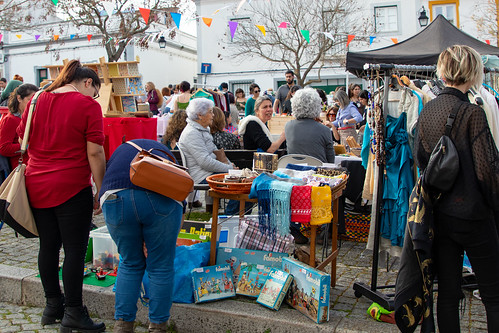
PROTOTYPING IN ÉVORA
The day after the conference, 16 March, participants were able to take part in the Feira da Cadeira, which marked the conclusion of the local project developed by students from the University of Évora. The Feira da Cadeira was a one-day event with two main objectives: to disseminate the results of the students’ work and to restore the commercial and social relevance of the historical Largo do Chão das Covas in Évora. The Feira da Cadeira programme included a community market with more than 80 sellers of art, crafts and second-hand items, workshops, activities for children, talks, collective singing, a DJ and a concert. The event was well attended and fulfilled the project’s objectives, contributing to the dynamisation of the square, which became a meeting point for various communities during the day.
Placemaking
Placemaking, a methodology that involves the community in the planning and design of public spaces, was the central focus of these projects. The students applied knowledge and skills acquired during the course to address specific challenges in their cities, highlighting the importance of higher education in sustainable and people-centered urban transformation.
The projects presented not only offered innovative solutions to specific urban and social problems but also demonstrate the commitment of the next generation of professionals and citizens to creating more inclusive, sustainable, and vibrant environments.
Play/Act Project
Play/Act is funded by the Erasmus+ program of the European Union and involves the participation of the University of Extremadura and the Ministry of Economy, Science, and Digital Agenda of the Government of Extremadura, as Spanish representatives. They develop this project together with the University of Évora and Community Impact of Lisbon, in Portugal; the Consortium of Creative Industries of Matera Hub, as a representative of Italy; as well as the Hungarian Center for Contemporary Architecture or KÉK, based in Budapest.
For more information about the PLAY/ACT project and the Placemaking projects presented, please visit the website www.playact.eu.
